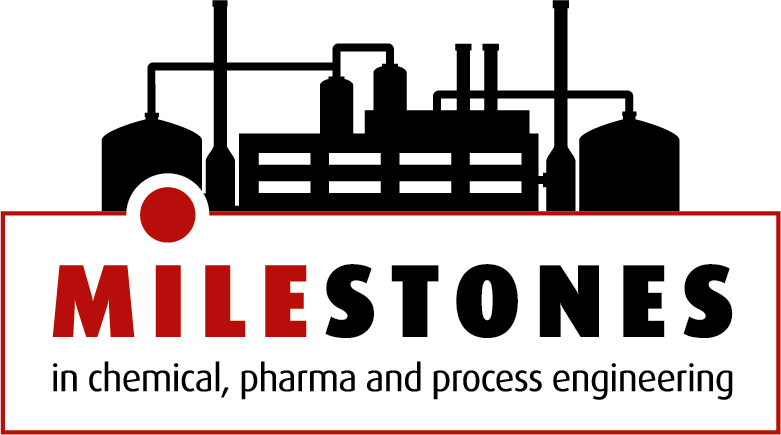:quality(80)/images.vogel.de/vogelonline/bdb/1842300/1842388/original.jpg)
China Market Insider Beijing Views Engineering Plastics as Achilles Heel in Trade War
China wants to reduce its ‘import dependence’ on engineering plastics. This is stated in the new 14th five-year plan of the communist leadership in Beijing, which has its eye on the strategic value of these special chemicals used across a number of domestic industries. Recently, concrete targets for ‘self-sufficiency’ in these materials were published, reports the chemical newspaper Zhongguo Huagong Xinxi Zhoukan.
Related Companies

Beijing/China – According to the '14th Five-Year Development Plan for the New Chemical Materials Industry', the overall self-sufficiency rate for engineering plastics has increased to 85 percent by 2025. For polyester-based engineering plastics, China even wants to become a net exporter by then.
Since former US President Donald Trump started a trade war with China and, among other things, made it more difficult to export semiconductors to China, the Chinese leadership has become obsessed with the topic of self-sufficiency. In addition to the semiconductor industry, a whole range of other ‘future technologies’ such as artificial intelligence, e-mobility and robotics are being promoted even more strongly than before in order to become independent of political blackmail from abroad as quickly as possible.
Especially in the construction of e-cars, for high-quality electrical and electronic devices, in space travel and in the advanced manufacturing industry, the demand for engineering plastics is currently increasing. From Beijing's point of view, the materials have thus become a kind of Achilles' heel in the global competition of systems, which must be strengthened at all costs.
And there is still a lot to be done. "Compared to developed countries, the production capacity of engineering plastics in China is relatively backward," writes the Qianzhan Industry Research Institute in an analysis of the sector. Nylon, PC, POB, PBT and PPE, for example, are all already produced in industrial quantities by domestic companies, but the quality is usually not sufficient for really demanding applications, write the market researchers.
The demand for PPA in China is expected to grow by 8% a year from now, to around 50,000 tons a year in 2025
Fear of dependence on imports
Particularly high-quality engineering plastics are currently produced mainly by chemical companies in Europe, the USA and Japan. One example is PPA. "The import dependency is about 70 per cent," complains Chemiezeitung.
Polyphthalamide is a thermoplastic, synthetic resin that is not only becoming increasingly popular in the automotive industry, among others, because of its good moldability, but also in electronics. However, the majority of it is currently still produced by companies like Dupont in the USA, BASF in Germany or Mitsui Chemicals and Kuraray in Japan, write the Chinese media with clear displeasure.
If China does not quickly increase its domestic production capacity, it will become even more dependent on imports in the coming years, argue nationalist Chinese. Chinese companies such as Kingfa Science & Tech, Jiangmen Dezhongtai Engineering Plastic Technology, Qingdao Benzo and Zhejiang NHU already produce around 16,000 tons of PPA per year.
But demand for PPA in China is expected to grow by eight per cent a year from now, to around 50,000 tons a year in 2025, say market research reports. How Beijing plans to reverse the ratio of imports to domestic production in such a short time in view of such figures is currently unclear. For foreign chemical companies, however, the protectionist requirements are a challenge that must be taken seriously.
LCP production as a blueprint?
A good example of what industrial policy makers in China are capable of, is the production of LCP (Liquid Crystal Polymer). This aromatic polyester material shows highly welcome mechanical properties in industrial applications, such as low moisture absorption, high temperature resistance and low flammability. It is therefore considered a key component not only in car manufacturing, but also for military and aerospace applications.
In a national tour de force of the first order, a considerable Chinese LCP production has come out of nowhere, so to speak, in recent years. Chinese companies such as Shenzhen Wote Advanced Materials, Shanghai Pret or Ningbo Copolymen New Materials now produce 18,000 tons of the sought-after material domestically.
But here, too, up to 80 per cent still has to be imported to China from abroad, especially for technically high-quality LCP, as it is needed for applications in connection with 5G networks, among other things. With China's policy of promoting future technologies, however, the demand for LCP, among other things for the production of connections in various electronic devices, is now growing even faster than before.
Ambitious goals by 2025
There is a similar relationship of high imports and rapidly growing demand in China for PEEK. Victrex in England dominates the world market, Solvay in Belgium and the German company Evonik are also large producers. Chinese companies, many of them in Jilin in the north-east of the country, are catching up, but with demand growing by 15 to 20 per cent a year, they are by no means able to achieve the ‘import substitution’ urgently desired by the Beijing headquarters.
From today's perspective, the communist leadership's goal of producing 85 percent of engineering plastics in China by 2025 seems very ambitious. But the direction is clearly set: a gradual reduction of imports. For foreign companies, market opportunities in China will increasingly depend on whether they also produce in China. Victrex and Xingfu Chemical set up a joint venture for PEEK production in Liaoning last year.
* Henrik Bork, former China correspondent of the German Süddeutsche Zeitung and the Frankfurter Rundschau, is Managing Director at Asia Waypoint, a Beijing-based consulting agency. ‘China Market Insider’ is a joint project of the Vogel Communications Group, Würzburg, and Jigong Vogel Media Advertising in Beijing.
(ID:47465149)




:quality(80)/images.vogel.de/vogelonline/bdb/1840600/1840610/original.jpg)
:quality(80)/images.vogel.de/vogelonline/bdb/1840500/1840546/original.jpg)
:quality(80)/images.vogel.de/vogelonline/bdb/1838700/1838796/original.jpg)
:quality(80)/images.vogel.de/vogelonline/bdb/1842200/1842207/original.jpg)
:quality(80)/images.vogel.de/vogelonline/bdb/1842000/1842025/original.jpg)
:quality(80)/images.vogel.de/vogelonline/bdb/1841600/1841623/original.jpg)
:quality(80)/images.vogel.de/vogelonline/bdb/1841400/1841453/original.jpg)
:quality(80)/images.vogel.de/vogelonline/bdb/1838300/1838395/original.jpg)
:quality(80)/images.vogel.de/vogelonline/bdb/1836400/1836498/original.jpg)
:quality(80)/images.vogel.de/vogelonline/bdb/1827600/1827658/original.jpg)
:quality(80)/images.vogel.de/vogelonline/bdb/1830800/1830869/original.jpg)
:quality(80)/images.vogel.de/vogelonline/bdb/1842000/1842066/original.jpg)
:quality(80)/images.vogel.de/vogelonline/bdb/1841600/1841689/original.jpg)
:quality(80)/images.vogel.de/vogelonline/bdb/1841400/1841428/original.jpg)
:quality(80)/images.vogel.de/vogelonline/bdb/1838300/1838310/original.jpg)
:quality(80)/images.vogel.de/vogelonline/bdb/1839600/1839675/original.jpg)
:quality(80)/images.vogel.de/vogelonline/bdb/1838400/1838431/original.jpg)
:quality(80)/images.vogel.de/vogelonline/bdb/1838500/1838559/original.jpg)
:quality(80)/images.vogel.de/vogelonline/bdb/1837700/1837708/original.jpg)
:quality(80)/images.vogel.de/vogelonline/bdb/1842600/1842689/original.jpg)
:quality(80)/images.vogel.de/vogelonline/bdb/1842600/1842607/original.jpg)
:quality(80)/images.vogel.de/vogelonline/bdb/1842300/1842356/original.jpg)
:quality(80)/images.vogel.de/vogelonline/bdb/1807900/1807985/original.jpg)
:quality(80)/images.vogel.de/vogelonline/bdb/1797900/1797927/original.jpg)
:quality(80)/images.vogel.de/vogelonline/bdb/1797600/1797603/original.jpg)
:fill(fff,0)/images.vogel.de/vogelonline/companyimg/60900/60956/65.jpg)
:fill(fff,0)/images.vogel.de/vogelonline/companyimg/122600/122692/65.png)
:quality(80)/images.vogel.de/vogelonline/bdb/1823300/1823332/original.jpg)
:quality(80)/images.vogel.de/vogelonline/bdb/1837200/1837226/original.jpg)